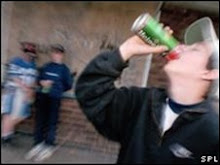
The originating idea of alcohol control was implementing laws to keep alcohol away from the powerless. Today, the function of control on sales and accessibility of alcohol are to protect youths from its harms. However, research shows that the “control model of prevention” is a misleading notion. Control does not inevitably stop youths from drinking but it does have major benefits for the government as alcohol taxes are a significant source of revenue (http://www.indiana.edu/~engs/cbook/chap8.html).
One of the most stringent controls is to execute severe consequences to those who are caught selling alcohol to minors. As well as, being a parent of a youth who drinks alcohol and later drives or has any type of accident under the influence. For the most part, these consequences are harsh (as mentioned previously). In some cases, where youths use fake ID or have a house party behind his or her parent’s back, the penalty for the person claimed responsible may be unjust. In many cases, drinking alcohol is a cultural tradition, but if one witnesses giving a minor alcohol, they must report it. (http://www.dontletminorsdrink.com/parents/report.shtml).
If implementing the “control model of prevention” is only a small factor of what keeps youth safe from alcohol, why are the consequences so severe for the helpless controller?
It is important to recognize the difference between protecting minors and making a buck by applying these policies. In the case of culture, this policy can be unnecessarily oppressive. Also, in the case of an uninformed parent whose child has a house party, the consequences can be tragic. If the youth is persistent of attaining alcohol, but the provider or person in charge gets the blame, there is no incentive for a minor to stop trying. It seems that it is easier for the government to oppress and reap the benefits, then spend money educating youths.


1 comment:
This quote is another perspective of alcohol control and the oppression of youths...
“Alcohol legislation is open passed with less concern for the law's actual impact (or lack thereof) on drinking behavior than with its political value for the legislators; that is, with how their constituents will perceive their votes and how future opponents might be able to attack their voting records'. Furthermore, with over two-thirds of the adult American population being drinkers, rigorous enforcement of restrictive legislation is not viewed as a priority by the general population, by the police, or by the courts”.
This is another reason why they single out youths
Post a Comment